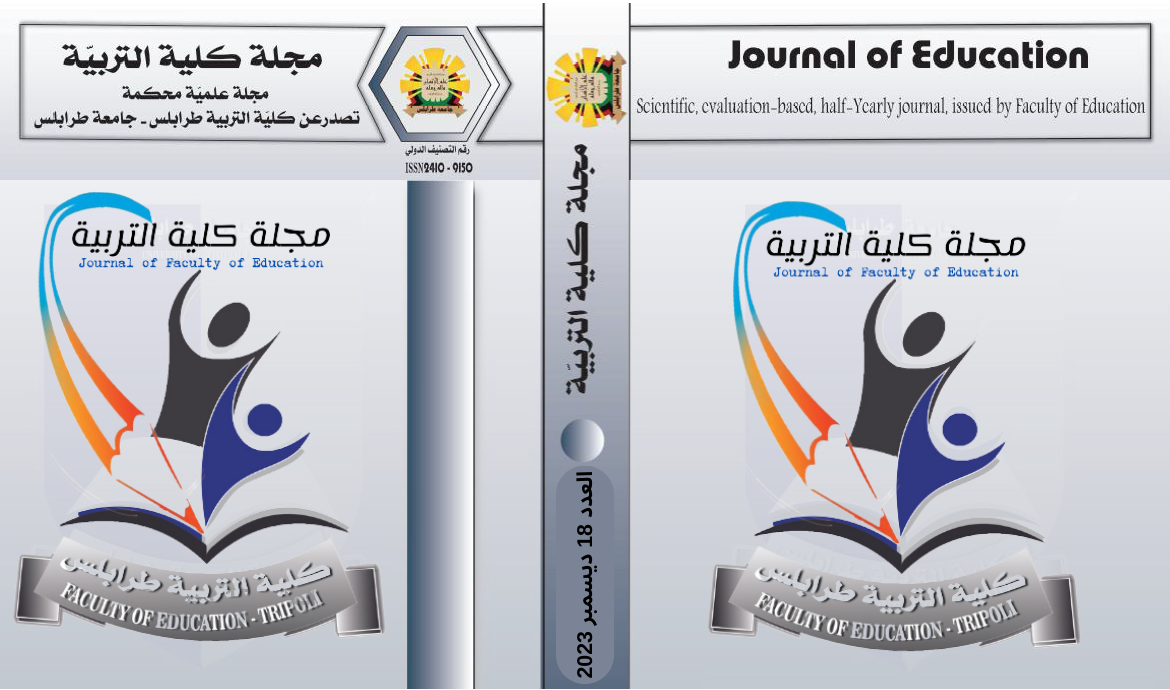اختيارات ابنِ عَجِيبَة (ت1224ه) في تفسيره مِنَ الخِلافِ النحويّ في تقديرِ المَحذوف – حذفُ المبتدأ أنمو
Keywords:
الحذف،, المحذوف،, المبتدأ،, الخلاف في التقدير،, ابن عجيبةAbstract
الحذف والتقدير من الظواهر اللغوية المعروفة، ليس في لغتنا العربية فحسب، بل تشترك فيه اللغات الأخرى كذلك، ولكنّ هذه الظاهرة في لغتنا أكثر وضوحا، ويلجأ إليها المتكلم طلبا للتخفيف والإيجاز، وقد مهّد البحث بترجمة موجزة لابن عجيبة، وتعريف الحذف والتقدير لغة واصطلاحا، وبيّن أنه لابدّ من وجود دليل على ما يحذف، ويكون وفق ضوابط وشروط، وقد شملت ظاهرة الحذف الاسم والفعل والحرف والجملة، وتناول الجانب التطبيقي من البحث ظاهرة الحذف والتقدير في القرآن الكريم، من خلال تفسير ابن عجيبة، وقد اقتصر البحث على حذف المبتدأ –خوف الإطالة- وذلك من خلال نماذج متعدّدة حُذف فيها المبتدأ، بيّن فيها البحث الخلاف بين النحاة في تقدير المحذوف، ومواقف ابن عجيبة من ذلك في تفسيره (البحر المديد)، مع التعقيب على الخلاف كلما أمكن ذلك، وقد كان كثير من الخلاف في التقدير اختلاف تنوّع لا اختلاف تضادّ.
Deletion and ellipsis are well-known linguistic phenomena, not only in Arabic but also in other languages. However, this phenomenon is more prominent in Arabic, where speakers resort to it for the purpose of brevity and conciseness. The research started with a brief translation about Ibn Ajiba, defining deletion and ellipsis linguistically and idiomatically, and it clarified the necessity of having evidence for what is deleted, following specific rules and conditions. The phenomenon of deletion encompassed nouns, verbs, particles, and sentences, and the research addressed the practical aspect of the phenomenon in the Quran, through Ibn Ajiba's interpretation, focusing on the deletion of the subject - to avoid prolongation - and presenting multiple examples. The research also highlighted the disagreement among grammarians in interpreting the deleted element, along with Ibn Ajiba's positions on this in his interpretation (Al-Bahr Al-Madid), with comments on the disagreement whenever possible. The disagreements in interpretation were more about diversity than contradiction.




